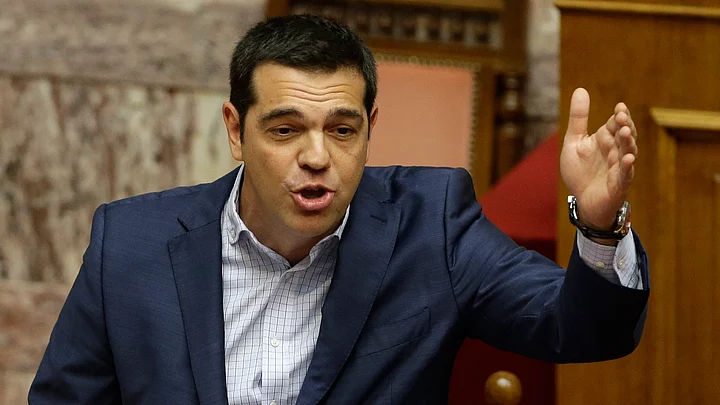The Greek government has announced that the Athens Stock Exchange will reopen on Monday, a big step toward normalcy as talks with international creditors shift into high gear.
The exchange has been closed since June 29, when the government imposed capital controls to prevent a banking collapse.
Finance Minister Euclid Tsakalotos signed the order, that also includes restrictions for Greece-based traders for an unspecified time period, on Friday. A 60 euro limit on cash machines withdrawal will remain in place.
Tsakalotos met with lead negotiators from the European Union and International Monetary Fund to start negotiations for a third bailout worth 85 billion euros ($93 billion), following several days of preparatory meetings between lower-level officials on reforming the tax system and labor market regulations.
The third bailout will include a new punishing round of austerity measures heaped on a country reeling from a six-year recession and more than 25 percent unemployment.
Prime Minister Alexis Tsipras has pledged to back the new cutbacks, while openly admitting that he disagrees with them.
We will implement them, yes, because we are forced to but at the same time we will struggle to change them, to improve them and to counter their negative consequences.
– Alexis Tsipras Prime Minister
The bailout talks with the IMF, European Commission, European Central Bank and European Stability Mechanism must be concluded before August 20. That’s when a debt repayment to the ECB worth more than 3 billion euros is due — money which Greece does not have.
Tsakalotos said the talks are focused on how to recapitalise Greece’s battered banking system, whose deposit base was badly hit in recent months as Greeks, fearing a euro exit, emptied their accounts. The talks also addressed Greece’s privatisation commitments and budget surplus targets.
“As you can understand, there was convergence on some points, and less convergence on others,” he said.
Friday’s meetings came hours after Tsipras defeated a bid by dissenters in his left-wing Syriza party, to push for an end to bailout negotiations and seek a return to the old national currency, the drachma.
(At The Quint, we question everything. Play an active role in shaping our journalism by becoming a member today.)
